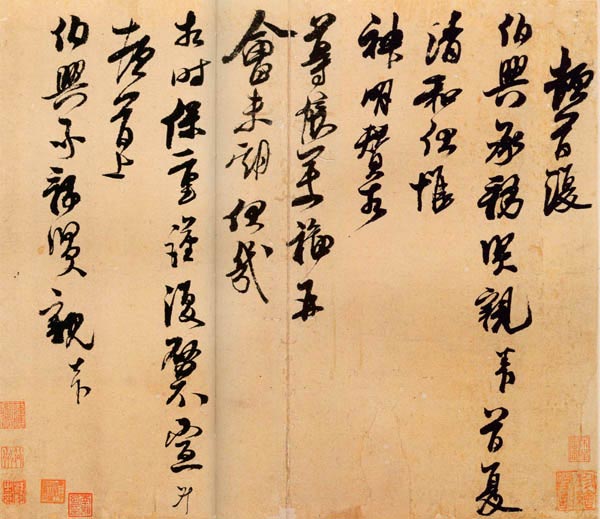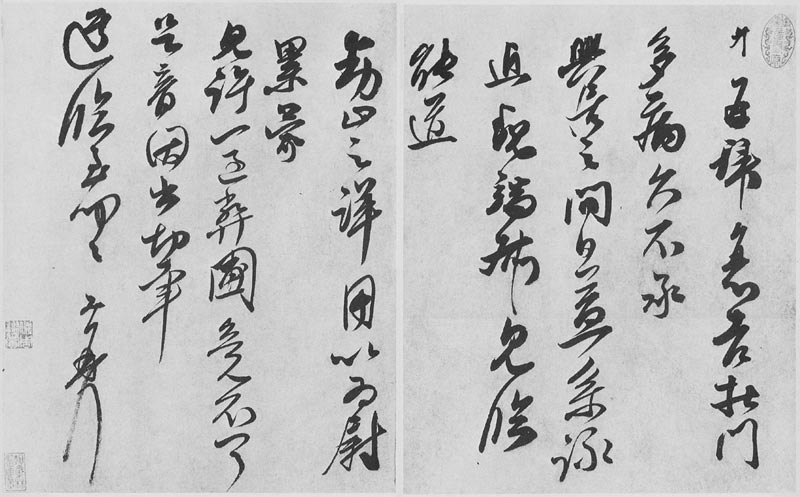Wang Sheng (1067-?), courtesy name Yilao, was born in Bian (now Kaifeng, Henan). During the reign of Xuan and Zhengjian of Song Dynasty, he was called to serve as Bu Youjue. After crossing to the south, he lived in Jiahe Lamb, and named himself the Lamb layman. During the reign of Emperor Gaozong of the Song Dynasty, he summoned the Mongolian family officials to the official envoy. The year of his death is unknown, but he was still alive in 1149. Yu Ji commented: "Yi Lao's cursive script has a special twist and turn from Xu Dian." However, if we look at its handwriting, we can actually learn from Mi Fu.

Wang Sheng's "First Summer Tie" paper, running script, length 32.2 cm, width 38.1 cm, collected by the Palace Museum, Beijing
Explanation: The craftsman paused and returned, and Boxing sat down with his wife. In the first summer of Qinghe, the gods of Fuwei praise you and wish you all blessings. We are not expecting to see you again. Please take care when you visit us. I would like to reply and will not announce it. After Sheng Dun, he went to Boxing Chengwu Xian and sat down
Wang Sheng's cursive calligraphy was quite famous in the Southern Song Dynasty. According to the data, he was the calligrapher of Zhang Xu and Huai Su, but from now on, there is no trace of his origin relationship with the above two people. Instead, he is very close to Minangong's calligraphy style. The calligraphy of this post He is a scholar of Mi Fu, with a vigorous and vigorous style, and his writing style is old and vigorous, which should be written in his later years.
Appraisal and collection seals include "Song Nao Appraisal" (Zhu Wen), "Zhen Hui Tang Ji" (Zhu Wen), "Lianqiao Appreciation" (Zhu Wen). "Yanzhou" (Zhu Wen), "Wang Xun's Seal" (Bai Wen), "Nanyun Zhai" (Zhu Wen), "Yi Jinzhai Book Seal of the Eleventh Son of the Emperor" (Zhu Wen), "De" and "Liang" (Zhu Wen) Lianzhu).
Records of the past dynasties: "Appraisal of Paintings and Calligraphy"

Wang Sheng's "Tie on Aging", ruler and tablets, collected by the National Palace Museum, Taipei
Explanation: After the promotion, I paid homage to the aging Du Men, who was suffering from many illnesses and had not been able to live for a long time. The problem was increasingly due to the fact that Uncle Duan of Wei Dynasty saw him and was able to tell the details of his movements and stops. This was used to explain Wei Leimeng's sight of Xu. When he passed the garden, he didn't hear the sound of his feet, so he was so lucky to come here. Kowtow to kowtow and then bow again








